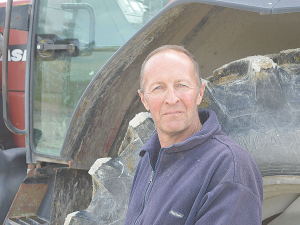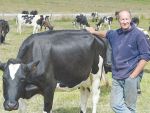Primary production select committee chair and ACT MP Mark Cameron recently contributed to the Resource Management (Freshwater and Other Matters) Amendment Bill - Second Reading in Parliament. Here are excerpts from his speech:
I don't enjoy conflation in this House, although I’ve just heard a fair amount of it. I’ve heard language like “barriers to exploitation”, as if somehow this Government is hell bent on destroying the environment. What we are trying to do is speak to pragmatism, and I just want to touch on previous remarks by the former Minister for the Environment, David Parker, who did speak to a perceived animus that rural New Zealand had for that gentleman. I don’t believe that is the case. I think the perceived animus was from farmers who were disgruntled by lawmaking that didn’t understand causality – cause and effect – and some of the hyperbolic statements from the member (Green MP) Steve Abel just now insert a sort of rationale, you might say, that we’re hell bent on destroying the environment. What an absolute nonsense. We live in the environment.
The member spoke about significant natural areas, and I want to delve into that. I want to delve into intensive winter grazing. I want to delve into the national policy statement (NPS) for 2020 and what that looks like, and stock exclusion rules. And I’ll start in reverse order, if I may, about some of the remarks pertaining to not caring about animals; animals being knee deep – or hock deep, as we would call udder deep – in mud in intensive winter grazing. That is a reality.
Regarding the stock exclusion and intensive winter grazing legislation framework that we have proposed in this, that affords farmers a reality to feed their livestock to mitigate concerns about animal welfare. Feeding caloric value is what it’s called. So, we can introduce enough calories to our animals daily, because that part of the world doesn’t grow at that time of the year.
The NPS, when we are talking about freshwater, remarks about te mana o te wai – now, if I can frame that for this House: when you’re a farmer, when you’re a rural person, when you live in rural New Zealand, you hear all the time a hierarchy of obligations, what it means in rural New Zealand. And it’s predicated on, in descending order, a set of “thou shall not”, if you might like, principled on spiritual, then cultural, then economic. Legislators in this House come into my backyard and say, “You can’t do that.” That is a nonsense. The mauri or the lifeforce of the water – former Minister Parker mentioned that somehow it wasn’t being exercised by councils. Councils can’t even interpret this themselves. They’re saying to us that they don’t understand, and it quite literally could mean changing a water course to alleviate, in some of the submissions we heard, said flooding is changing the mauri or the lifeforce of the water. And yet that member over there and others say that te mana o te wai is not a problem, with the adherence to the hierarchy of obligations. Well, I’d wager anyone that it absolutely is.
Stock exclusion rules and intensive winter grazing was canvassed ad nauseam in the select committee. And I just want to commend all my committee. They work collegially, they work hard, we debate the issues, and I think we represented New Zealand in our capacity well. But I make a couple of observations. I am a farmer. That is a practical reality of feeding animals in a part of the world that has limited growth at that time of the year. It is a nonsense that the members opposite would assert – former Minister Parker referenced this before – sedimentation loss. We as cow cockies, wool growers, farmers, everyday people, talk about the top four inches. That is gold to us. I don’t need to have evangelical sermons from said member lecturing me on how to plough a field. I do it daily. Why on earth would farmers in rural New Zealand want to see their sediment wash down a waterway?
To Minister Parker and other members that criticise and critique, I would say that is a nonsense. We don’t do that. That’s the kind of asset we’ve spent an inordinate amount of money on a mortgage trying to preserve. It is a practice, and we do everything, to try and alleviate that: riparian planting, buffer zones, minimum areas that we would not otherwise, you might say, harvest for winter grazing purposes, or certainly cultivate.
Now, you try and reconcile that when you’re a rural New Zealander, when now the council has veiled the entire property, which you own a mortgage over, and said factually the way you farm is going to have to change because it is deemed a significant natural area.
That’s why we changed the legislation. We are economically depressed. I am tired, as a rural New Zealander, having been beaten up by people that do not understand my life, that farming people are not being listened to.
There have been assertions made that we must do more to care for the environment, whether it’s significant natural areas, whether it’s issues to do with intensive winter grazing, whether it’s to do with freshwater and the NPS for freshwater. All the above are the kinds of things that we as farmers, wool growers, cow cockies, we live with every day. We don’t need to have it lectured to us by this place. We live with it. That is our backyard. We own a mortgage that protects it, and we do damnably well to try and create tomorrow being a little bit better than today. This legislation affords that. It creates the environment that somehow will get a little bit more economic security, you might say, with all the difficulties that are being thrown against rural New Zealanders. Some of it is climate, some of it is market driven, some of it is silly lawmaking, both current and former, all of which we must reconcile and debate.
I will not apologise to this House and anyone in it for standing up for rural people and an outcome that creates a slightly better tomorrow than today.


















